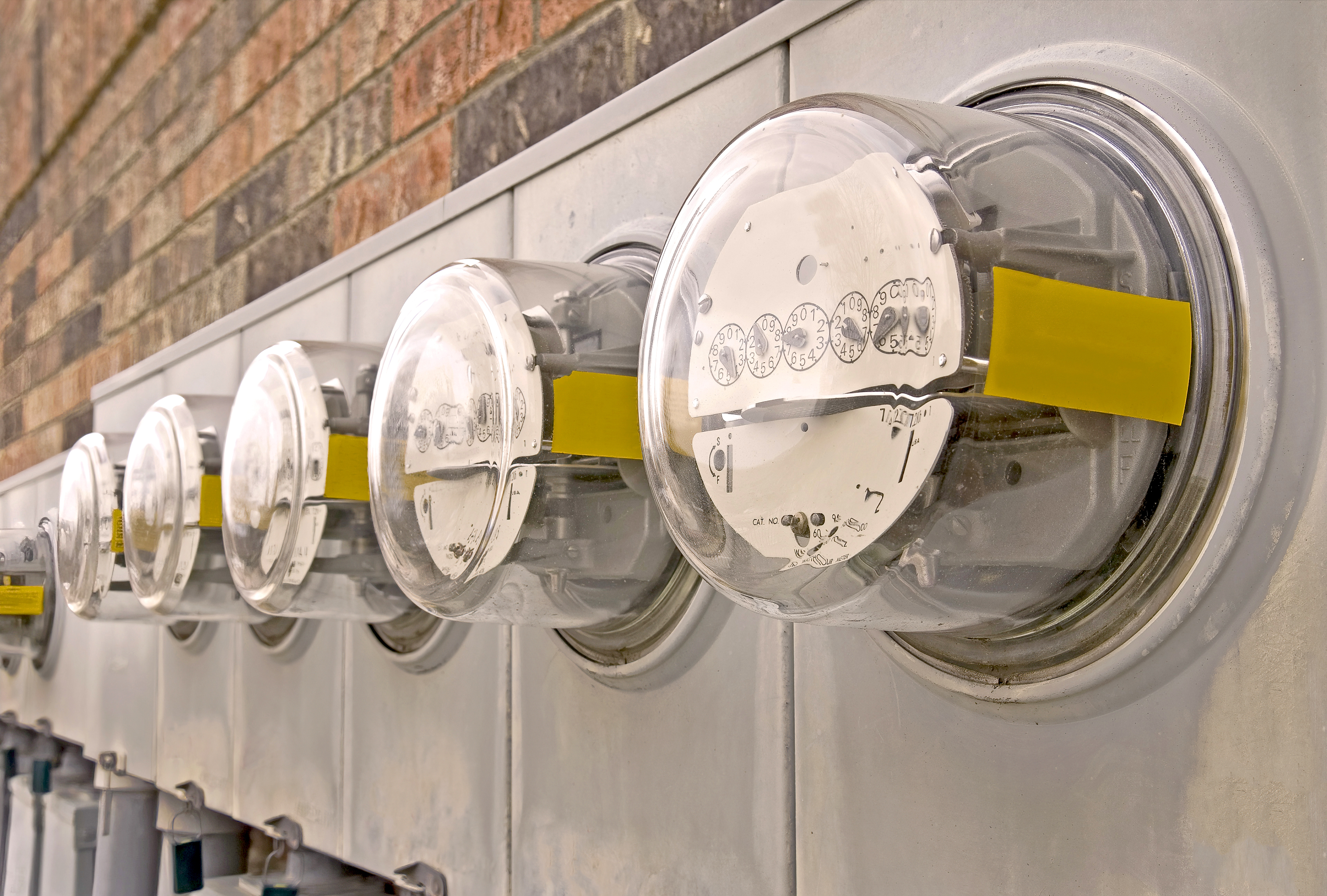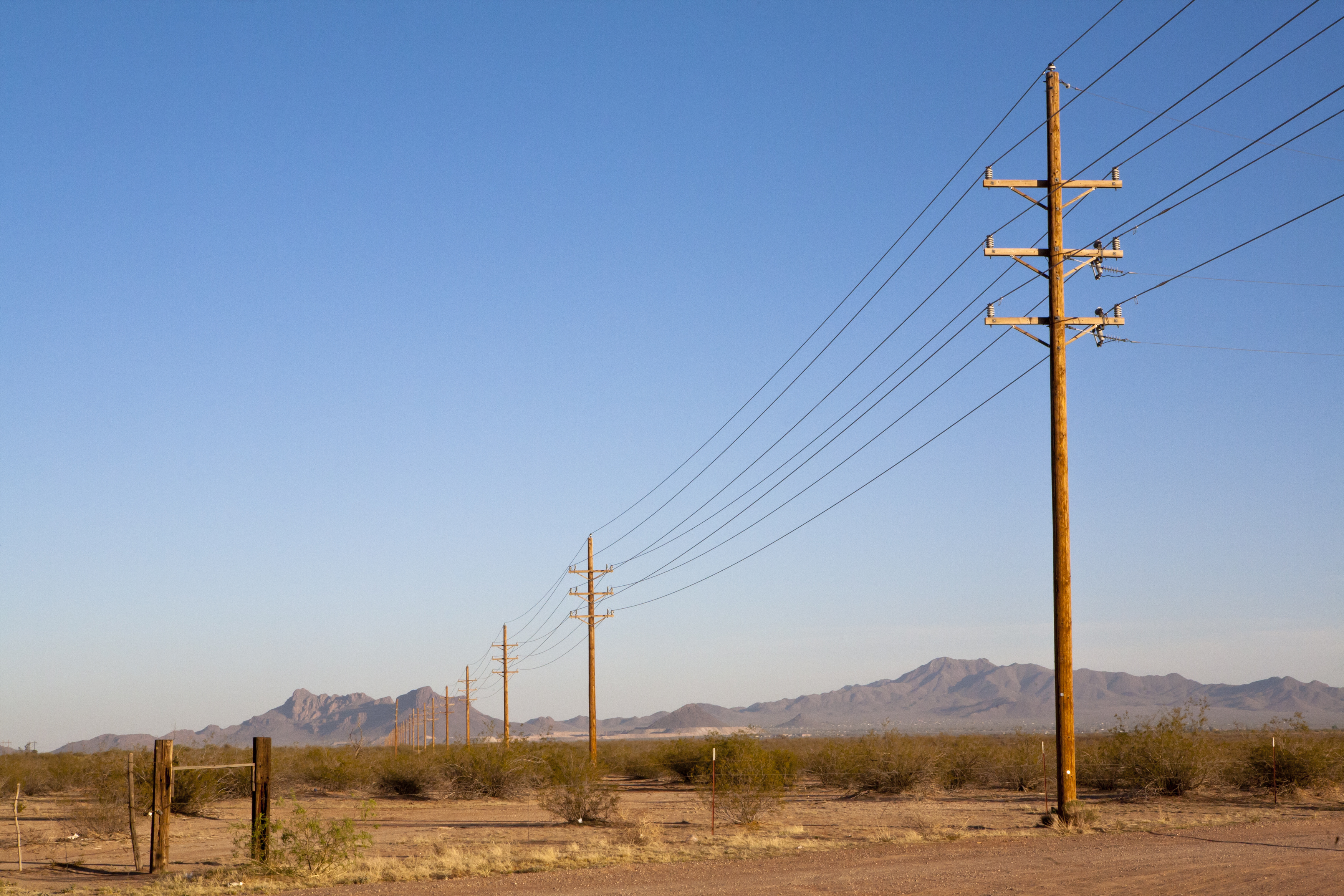Below are definitions of terms commonly used in the gas industry. This list is not designed to be comprehensive, but rather to give a basic definition. Some of these terms have specific regulatory or technical definitions as spelled out in law or statute. In those situations, the legal or technical definition takes precedence.
The Btu is a unit of measurement for energy. It represents the amount of heat that is necessary to raise the temperature of one pound of water by one degree Fahrenheit.
A transaction is considered bundled if it involves the purchase of the commodity of natural gas, distribution and transmission, typically from a single source such as Southwest Gas. See also Unbundled Services.
A location at which custody of gas passes from a gas pipeline company to a local distribution company.
Natural gas is compressed during transportation and storage. During transportation and storage, gas is compressed to save space. Pipelines have compressing stations installed along the line (one about every 100 miles) to ensure that the gas pressure is held high while the gas is being transported. Pressure in pipelines serving residential neighborhoods is generally much lower than the pressure on interstate pipelines.
A unit of measurement for natural gas volume. It represents an area one foot long, by one foot wide, by one foot deep. The heating capacity of natural gas is measured in Btus or therms.
Designates the point at which natural gas is transferred from one party to another. For example, the city gate is the delivery point for a pipeline or transportation company to the local distribution company.
A branch of the federal government that oversees domestic energy production, energy conservation and efficiency and the development of renewable and alternative energy sources.
Part of the Department of Energy and a primary source for a variety of useful energy information.
Federal Energy Regulatory Commission (FERC)
The federal agency that regulates interstate gas pipelines and interstate gas sales under the Natural Gas Act. Successor to the Federal Power Commission, the FERC is considered an autonomous regulatory agency responsible primarily to Congress, but it is housed in the Department of Energy.
This order fundamentally changed the structure of the natural gas market by requiring interstate pipelines to unbundle their sales service from their transportation service.
A type of contracted service where the distributor agrees to provide the buyer with an uninterrupted supply of gas. This type of contract is usually more expensive and is used primarily by those firms who cannot afford to risk loss of fuel for any period of time. See also interruptible service.
Flexible piping used to install gas service in residential and commercial areas. Flex lines are typically found on the water heater, stove, dryer and other appliances using natural gas.
A non-integrated company which receives nearly all of its revenues from gas produced at the wellhead. They are exclusively in the exploration and production segment of the industry, with no marketing or refining within their operations.
A type of contract that allows a distributing party to temporarily suspend delivery of gas to a buyer in order to meet the demands of customers who purchased firm service. Interruptible service is less expensive than firm service and is used by customers who can either accommodate interruption or switch temporarily to alternative fuels.
A retail gas distribution company that delivers natural gas to end users.
A 1991 federal proposal that focused on national security, conservation and regulatory reform, with options that encourage natural gas use.
The Natural Gas Act was passed in 1938, giving the Federal Power Commission (now the Federal Energy Regulatory Commission or FERC) jurisdiction over companies engaged in interstate sale or transportation of natural gas. The act instituted federal oversight of rates charged by interstate gas-transmission companies, and also limited certification authority. The principal aims of the Natural Gas Act were to:
An estimate of the amount of natural gas available, based on the combination of proved resources and those additional volumes that have not yet been discovered, but are estimated to be 'discoverable' given current technology and economics.
A natural gas vehicle is a new breed of car, bus or truck that is powered by a natural gas, either in compressed or liquid form, rather than the traditional gasoline or diesel fuel. Hybrid vehicles also exist that use a combination of natural gas and traditional gasoline. These vehicles offer an extremely clean, safe and efficient alternative to traditional transportation.
The period of time during a day, week, month or year when gas use on a particular system is not at its maximum.
Using other sources of energy, such as natural gas from storage, to supplement the normal amounts delivered to customers during peak-use periods. Using these supplemental sources prevents pipelines from having to expand their delivery facilities just to accommodate short periods of extremely high demand. See also Peak Use Periods.
The period of time when gas use on a particular system is at its maximum. This is the period when gas supply is most likely to be suspended for interruptible service customers. Distributors also employ techniques such as peak shaving to soften the impacts of high demand on the pipelines.
This is a device that measures pressure with respect to that of the atmosphere. These gauges are calibrated to read zero at the surrounding atmospheric pressure.
Companies involved in the exploration, drilling and refinement of natural gas. There are independent producers as well as integrated producers, which are generally larger companies that produce, transport and/or distribute natural gas.
The part of the natural gas resource base that includes the working inventory of natural gas. In other words, volumes that have already been discovered and are readily available for production and delivery.
A mechanism that adjusts monthly to reflect changes in the gas company's average cost of natural gas over the previous 12 months. The PGA cost reflects the difference between the base cost of gas (already built into the gas company's gas usage rates) and the company's actual cost of the natural gas commodity.
The point at which natural gas is transferred from the producer to the interstate pipeline.
A device that keeps gas pressure at a steady level or within a specified range of pressure.
A product of deregulation, the spot market is a method of contract purchasing whereby commitments by the buyer and seller are of a short duration at a single volume price. The duration of these contracts is typically less than a month, and the complexity of the contracts is significantly less than their traditional market counterparts.
Natural gas purchased on the spot market, which involves short-term contracts for specified amount of gas, at a one-time purchase price.
A measure of the heating content of gas. Household gas consumption is measured in therms. One therm equals 100,000 BTU's.
Generally large volume users, these are customers who purchase gas and interstate pipeline transmission service from a wholesaler and use the local distribution company to deliver gas to their site.
Separating pipeline transmission, sales and storage services into separate transactions or transaction prices. See also Bundled Services.
The use of sub-surface facilities for storing gas that has been transferred from its original location for the primary purpose of load balancing. The facilities are usually natural geological reservoirs, such as depleted oil or gas fields or salt caverns. There are currently more than 400 underground storage facilities spread across 27 states and Canada. As of June 2002, Arizona has no underground gas storage but several companies are looking at the development of storage facilities.
The source point for natural gas.
Helpful Links
ACC Decoupling Policy Statement
ACC Policy Statement Re. Natural Gas Infrastructure
Notice of Inquiry on Natural Gas Infrastructure
Energy Saving Solutions
FAQs
Financial Assistance Programs
Gas Outages in the Southwest 2011
Gas Rules
Gas Terminology
PGA Rates
Pipeline Safety Section
Underground Facilities Law
Public Information
Map of Arizona's Gas Companies
List of Regulated Gas Companies
Address:
1200 W. Washington St,
Phoenix, AZ 85007
Phone:
Phoenix Office:
(602) 542-4251
Tucson Office:
(520) 628-6550
Toll Free In-State Only:
1 (800) 222-7000
Email:
PLEASE NOTE - The use of inappropriate or threatening language when submitting a complaint or comment may result in your item not being docketed and/or no action taken.

Arizona Corporation Commission
Phoenix Office
1200 W. Washington Street
Phoenix, AZ 85007
> Commissioners
> Executive Director
> Legal
> Utilities
> Docket
> Hearings
Arizona Corporation Commission
Phoenix Office
1300 W. Washington Street
Phoenix, AZ 85007
> Administration
> Safety
> Corporations
> Securities
Arizona Corporation Commission
Tucson Office
400 W. Congress Street
Tucson, AZ 85701
> Corporations
> Hearings
> Utilities




